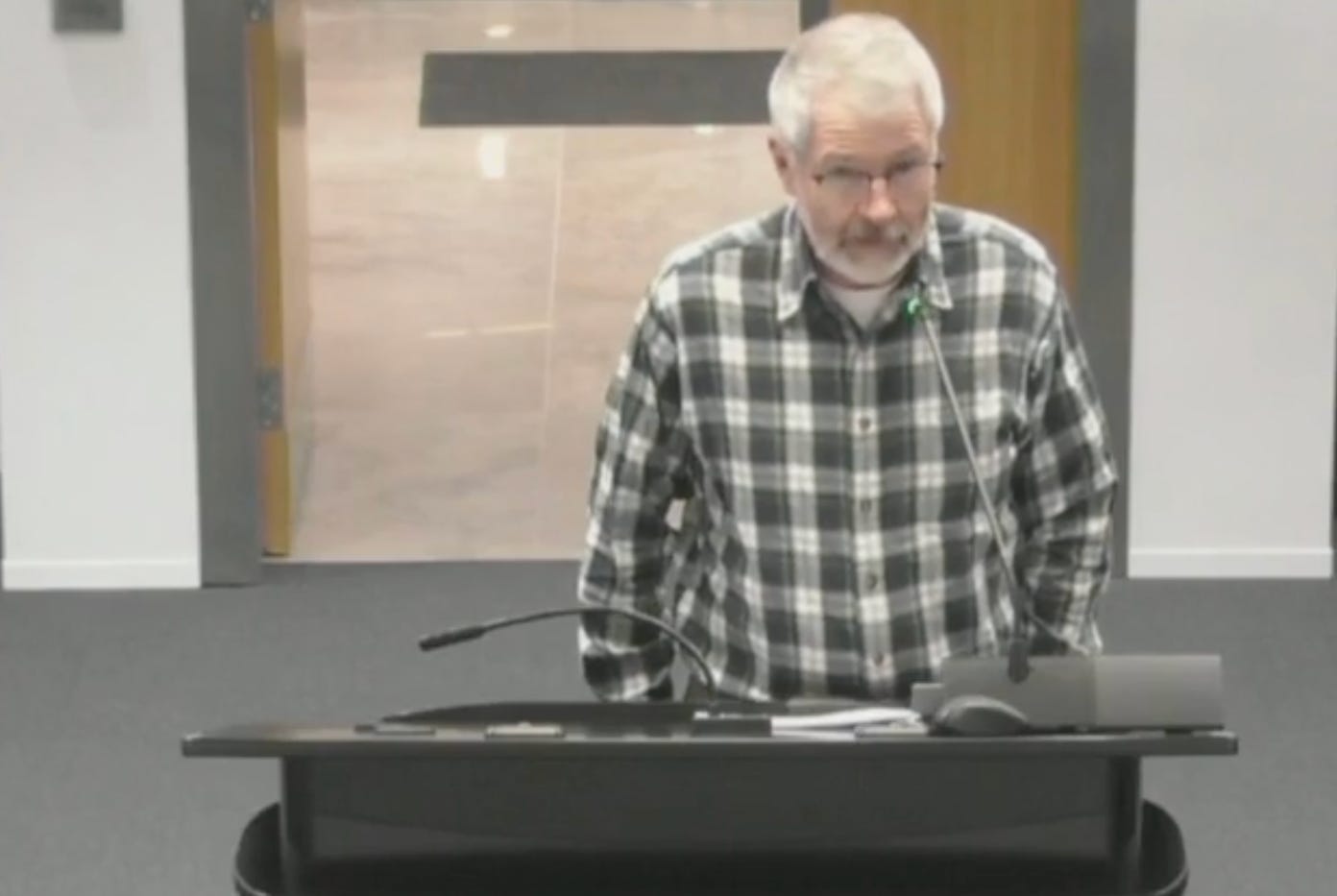Public Meeting on Owen Sound's Official Plan Update Draws Calls for Stronger Housing Commitments
Council held both mandatory public meetings on Official Plan changes on Monday, hours apart. Residents pushed for clearer language and more tools to support much-needed affordable housing.

Owen Sound City Council held a special meeting on Monday afternoon to hear public feedback on proposed changes to the city’s Official Plan. The meeting, held at 3:00 p.m. in Council Chambers, was the first of two mandatory public meetings scheduled that day as part of Council’s review of Official Plan Amendment No. 14.
Planning consultant Dave Aston of MHBC Planning presented the amendment at the meeting, describing it as part of a provincially required five-year review under Section 26 of the Planning Act.
While the City completed a full Official Plan review in 2022, this update is intended to align Owen Sound’s policies with recent changes to provincial and county planning frameworks, he said.
The proposed changes include reclassifying employment lands, updating definitions related to housing and employment uses, removing some administrative requirements such as pre-consultation, and reviewing policies around retail market studies.
Most of the changes are technical in nature, but public discussion at the meeting focused almost entirely on one issue: affordable housing, and whether the updated plan goes far enough to address it.
Three speakers participated during the public meeting, each urging Council to take tangible steps to strengthen the City’s commitment to supporting and protecting affordable housing — this time through its official planning process.
Ann Finley-Stewart, a longtime Owen Sound resident and former editor of The Owen Sound Hub, questioned the assumption that increasing housing supply will, on its own, improve affordability.
She pointed to provincial rules that allow landlords to raise rents on vacant units and emphasized that the city’s slow population growth complicates new development. Finley-Stewart asked Council to clearly identify how the Official Plan will support the creation and retention of affordable housing for local workers and residents with modest incomes.
Finley-Stewart also endorsed earlier written submissions from other community members, including Marilyn Struthers of the Social Finance and Housing Group (see more below) and David McLeish.
Ted Stewart also addressed Council, drawing attention to specific sections of the plan where the city uses terms like “may” or “will” when describing its role in promoting affordable housing. He urged Council to replace this language with “shall,” to create obligations rather than suggestions.
A third speaker, Christy Hempel, who works in the affordable housing sector, called on Council to remove zoning barriers that make it harder for non-profit groups to access new federal housing funding.
In particular, she pointed to the potential for supportive housing projects on underused institutional properties — such as churches, legions, or long-term care sites — and urged the city to make such conversions easier by pre-zoning them for residential use.
In response, the city’s planning consultant, Dave Aston of MHBC Planning, acknowledged the concerns. He stated that staff would review the wording in the plan, but said that in planning practice, “will” and “shall” are often interpreted similarly.
He also noted that the plan already allows for some residential use of institutional lands, though additional zoning amendments may still be required in many cases.
No changes were made to the Official Plan during the meeting, and Council did not pass any amendments at this stage to incorporate the suggestions. However, the comments were accepted into the public record.
A second statutory public meeting on Official Plan Amendment No. 14 was held later the same day, during Council’s regular 5:30 p.m. session. No additional speakers addressed Council during that meeting, and Council did not debate or vote on any policy changes during the evening session.
Planning staff confirmed that public input received earlier in the day would be reviewed and addressed in a forthcoming report, expected in January 2026.
In addition to in-person delegations, Council had already received written feedback in advance of the meeting. A detailed submission was sent by the Social Finance and Housing Group of the Institute of Southern Georgian Bay on November 18.
Letter: Suggestions to Strengthen Housing Supports in City of Owen Sound's Official Plan Update
The following letter from Marilyn Struthers for Institute of Southern Georgian Bay’s Social Finance and Housing Group was submitted to Pam Coulter, City Manager, and Briana Bloomfield, City Clerk, on November 18, 2025, and subsequently shared with Owen Sound Current for publication.
The group, which has been working regionally on affordable housing policy, praised the City for including the provincial definition of affordability in the plan but urged further action.
Among its recommendations:
distinguishing between subsidized and market-affordable housing in planning definitions,
expanding protections for non-market rentals,
supporting land banking through a regional trust model,
and updating municipal tools, such as the Community Improvement Plan and the Capital Facilities By-law, to better support non-profit housing development.
The group also called on Owen Sound to follow the examples set by similar-sized municipalities, such as Collingwood, in building civic infrastructure to support affordable housing.



